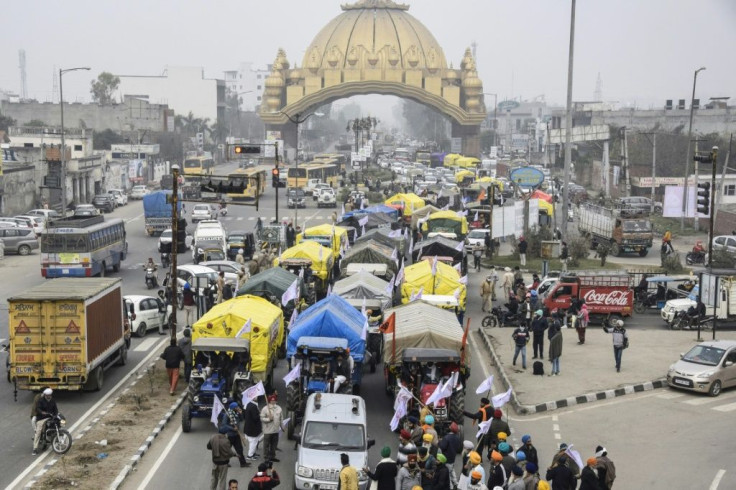Supreme Court Suspends India's Contentious Farming Laws
India's top court suspended on Tuesday the implementation of new agriculture laws that have sparked weeks of demonstrations by tens of thousands of farmers outside New Delhi.
The Supreme Court said it wanted to facilitate mediation between the government and the protesting farmers who fear the legislation will leave them at the mercy of big business.
"We are going to suspend the implementation of the three farm laws until further orders," Chief Justice Sharad Arvind Bobde said.
The court in Delhi added that it would form a committee of experts to try to resolve the protracted dispute, which has emerged as a major challenge to Prime Minister Narendra Modi.
"Every person who is genuinely interested in solving the problem is expected to go before the committee," the court added.
"The committee will not punish you or pass any orders. It will submit a report to us."
The committee would hold its first sitting within 10 days from Tuesday and would have to submit the report with recommendations within two months after that, the court said.
Farmers at the largest protest site at the Singhu border crossing north of Delhi said they welcomed the court's ruling but would not back down until the reforms are reversed.
"We're happy that the Supreme Court has listened to us," farmer Sarvjeet Singh told AFP.

"(But) we'd like to say that we won't end the agitation or leave until all three farm laws are permanently repealed."
The government has said the changes would allow farmers to sell to private buyers instead of just at state markets.
But the demonstrators -- mostly from states in northern India near Delhi -- fear that under the new system, large corporations would squeeze them for profits and destroy their livelihoods.
They have vowed to continue their protest until the laws are repealed. The government has said it would not consider repealing the laws.
Several meetings have been held between the government and farmers, but have not yielded any results. The next meeting was expected to be held in mid-January.
Political strategist Amitabh Tiwari said the Supreme Court's intervention was a blow to Modi's government.
"Agriculture is a touchy issue in India. More than 60 percent of the people are dependent upon agriculture," Tiwari told AFP.
"So that is why perhaps they face roadblocks while implementing their agenda in this sector."
He added that opposition parties and groups that have opposed his adminstration over other reforms would also be emboldened by the farmers' continuing protests.
© Copyright AFP 2024. All rights reserved.





















